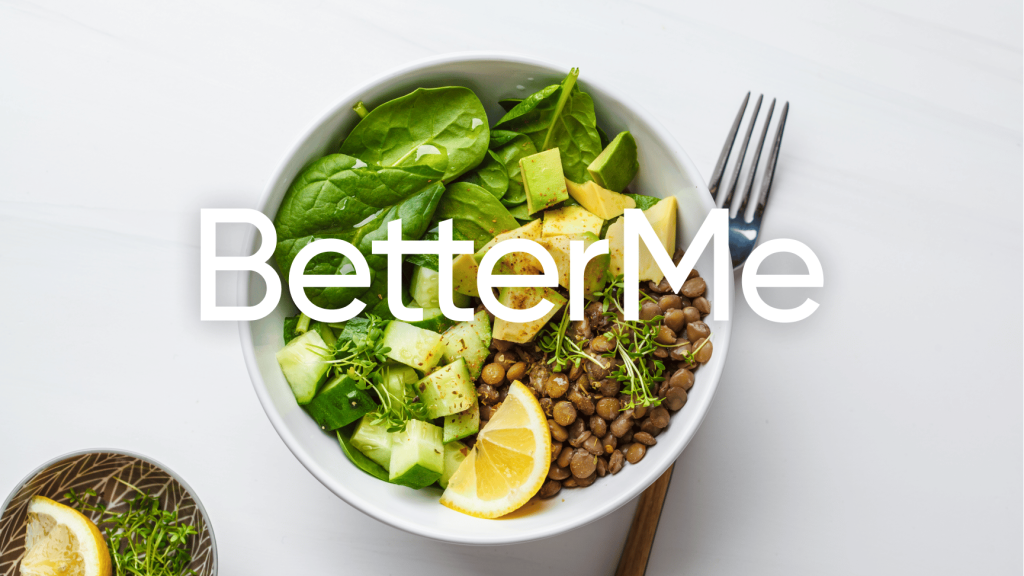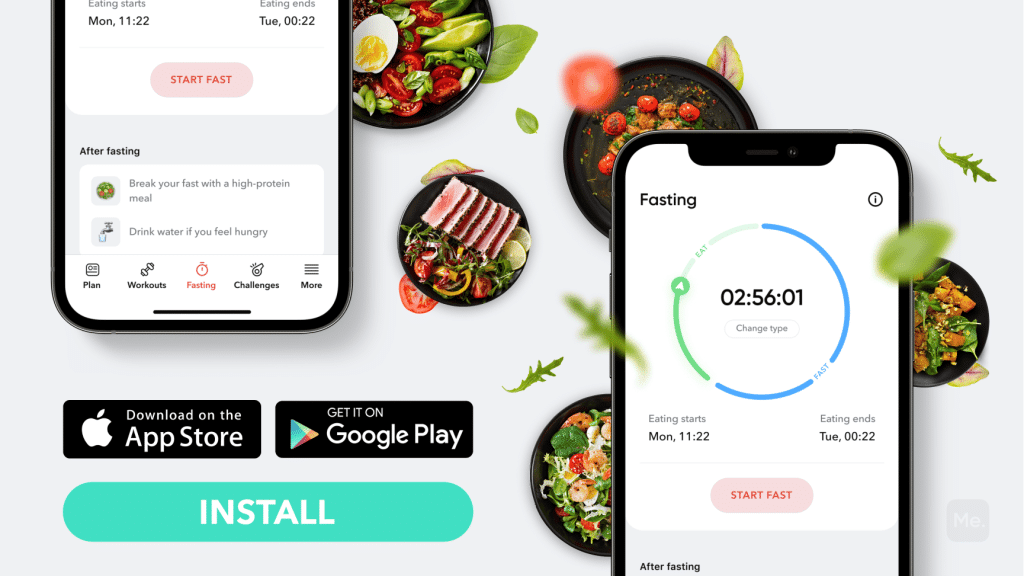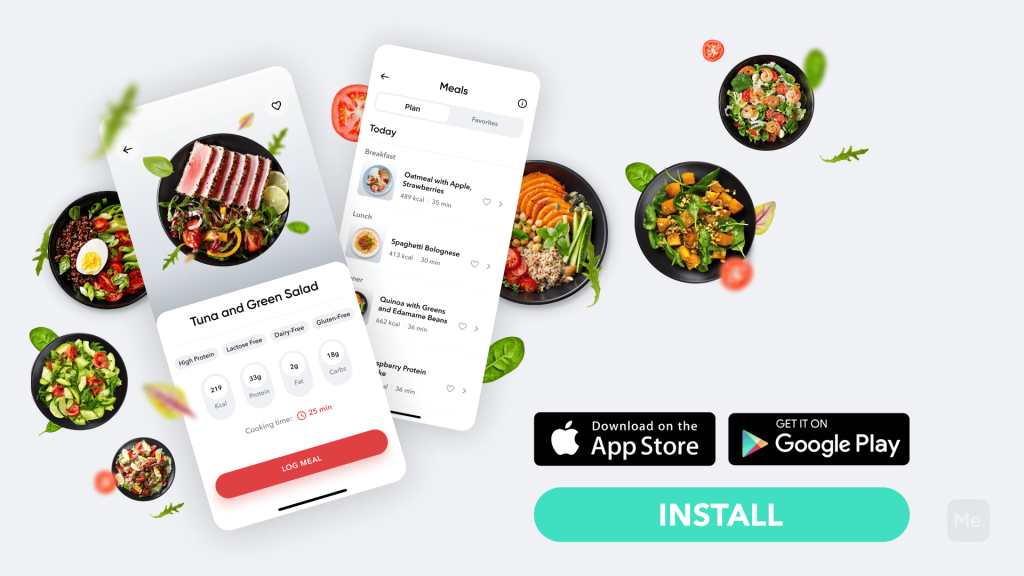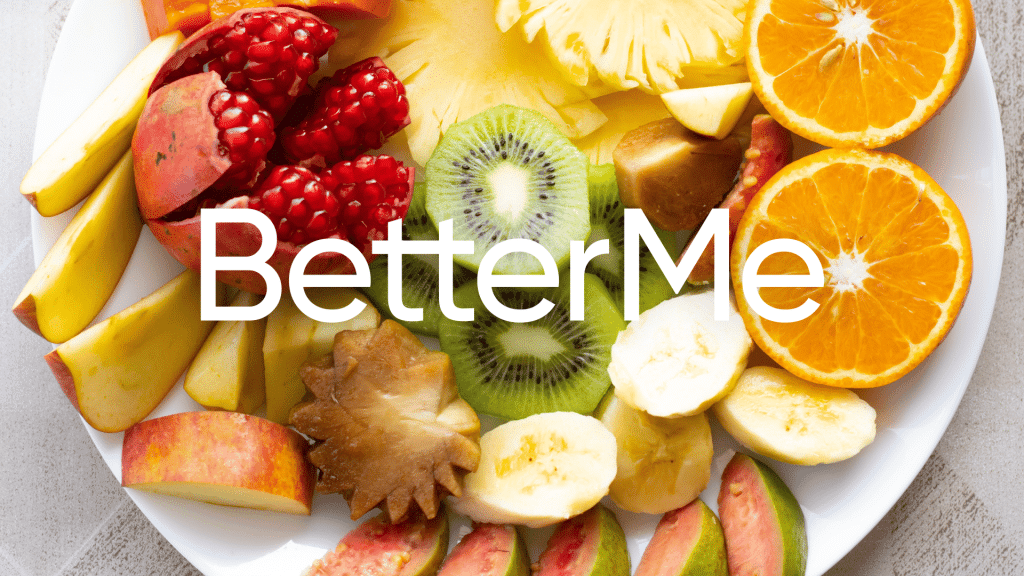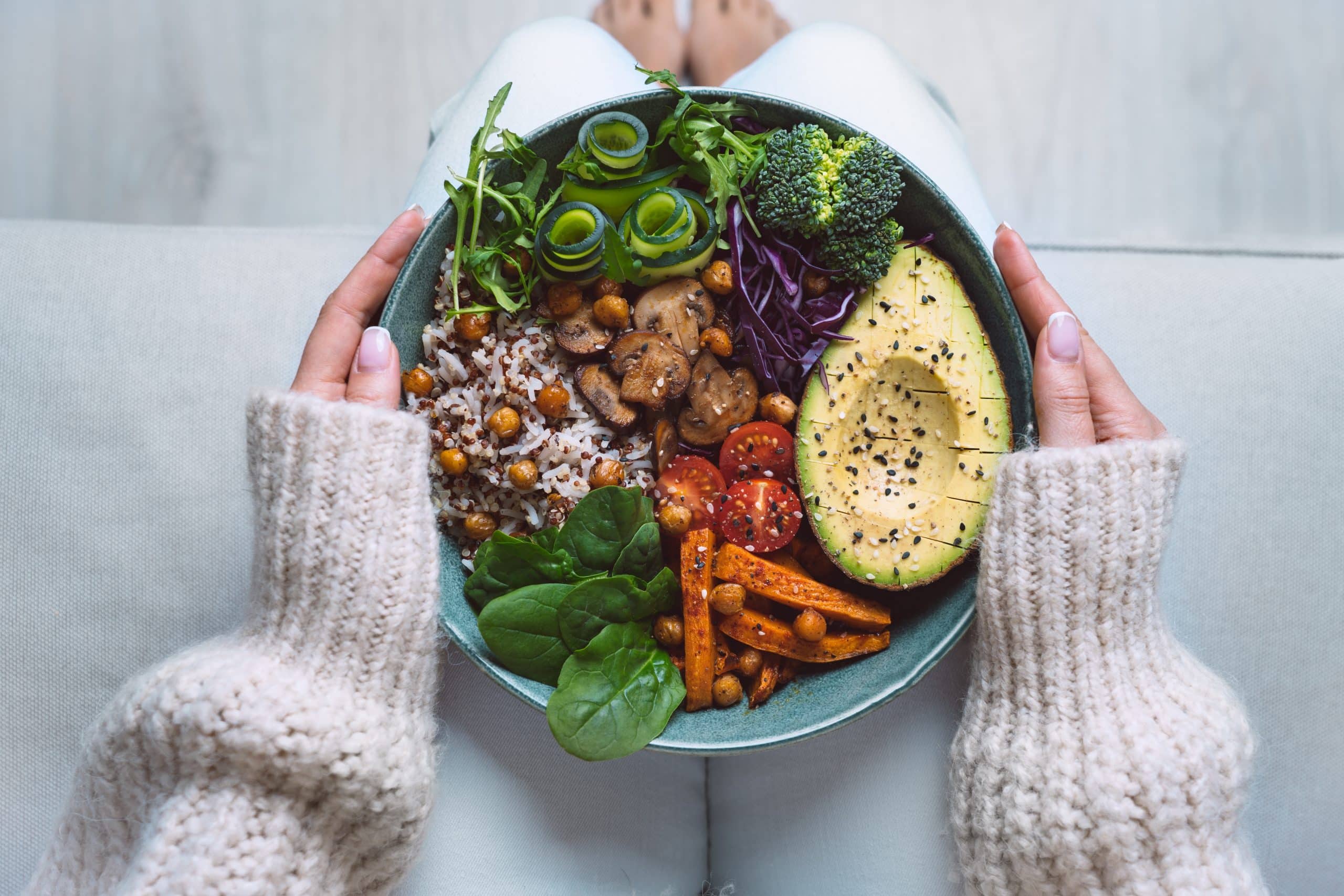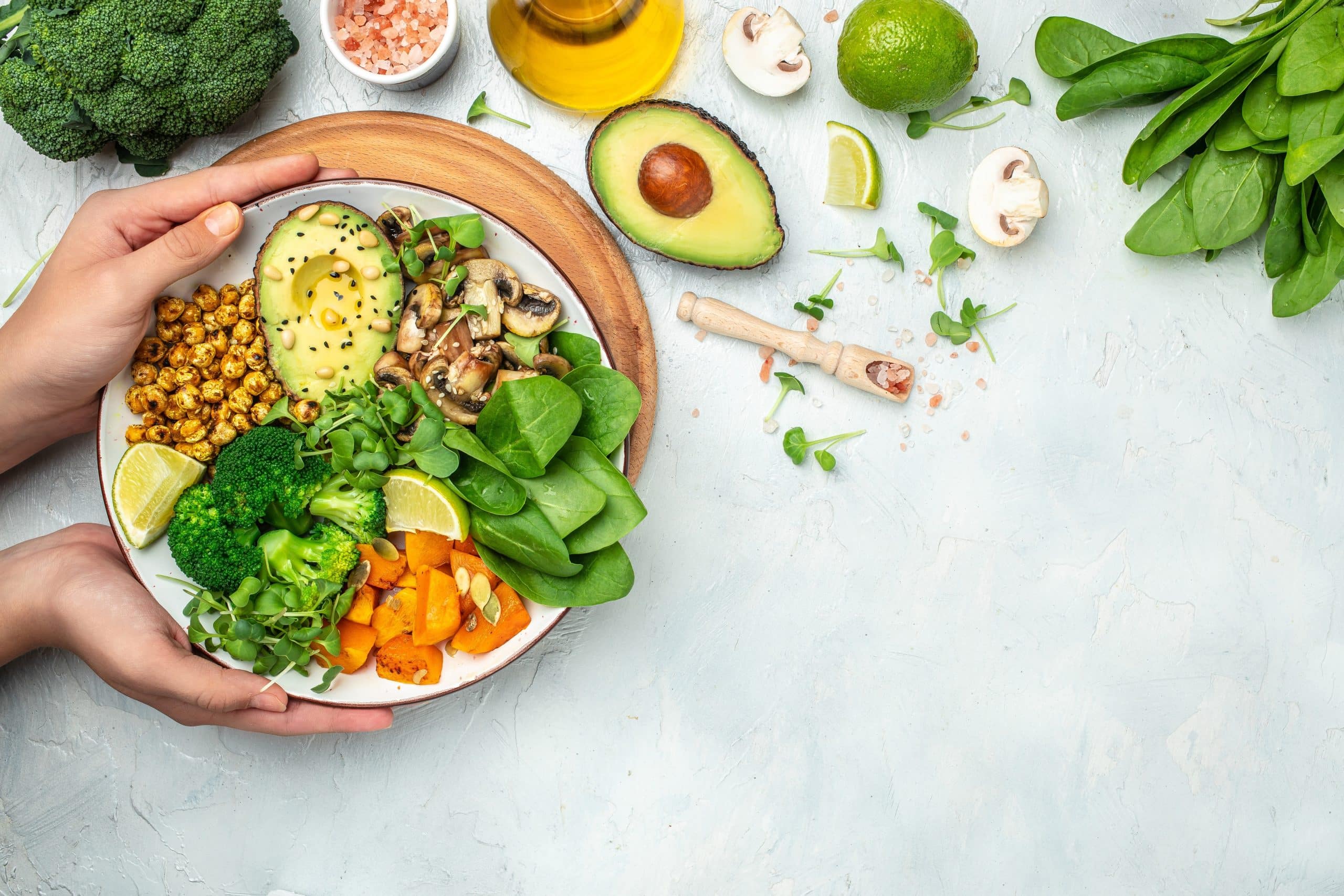Thinking of skipping breakfast so you can save some calories and lose weight? You might want to think again. Studies show that breakfast-eaters are less likely to be overweight/obese. They may also have a lower risk of metabolic syndrome, which can lead to several chronic diseases such as heart disease, stroke and type 2 diabetes (7). It’s easy to see why starting your day with a nutritious breakfast can help you make better food choices throughout the day. When you’re well-nourished, you’re less likely to reach for unhealthy snacks or overeat at mealtime. The good news is, there are plenty of healthy and delicious breakfast recipes that are low in calories and can help you lose weight. Read on to learn which ingredients should be in your pantry, and check out these recipes for some ideas on how to start your day off right.
What Is A Healthy Breakfast To Lose Belly Fat?
There are several qualities that make a breakfast healthy and helpful when trying to lose belly fat. A healthy breakfast:
Is Rich In Fiber
The link between a fiber-rich diet and weight loss is well-established. In fact, diets with adequate fiber intake have been linked to a reduced risk of obesity, type 2 diabetes and heart disease (8). Here’s why.
Fiber is a type of carbohydrate that the body can’t digest. It’s found in plant-based foods like fruits, vegetables, whole grains, legumes and nuts.
There are two types of fiber: soluble and insoluble. Both types are beneficial, but soluble fiber is especially helpful for weight loss.
Soluble fiber dissolves in water to form a gel-like substance. This type of fiber slows down digestion and helps you feel full after eating. Your gut also ferments soluble fiber, which feeds the friendly bacteria in your gut and promotes a healthy digestive system (13).
Good sources of soluble fiber include:
- Oats
- Chia seeds
- Flaxseeds
- Legumes
- Fruits like apples, oranges and bananas
- Vegetables like carrots, Brussels sprouts and potatoes
That’s not to say that insoluble fiber isn’t important. This type of fiber doesn’t dissolve in water, but it’s still beneficial for weight loss and gut health. Insoluble fiber adds bulk to your stool and helps move food through your digestive system (13).
Good sources of insoluble fiber include:
- Whole wheat flour
- Wheat bran
- Nuts and seeds
- Vegetables like green beans and cabbage
Aside from promoting satiety and digestive health, fiber-rich foods have other weight loss-friendly properties. They’re often high in vitamins, minerals and antioxidants, but low in calories. This combination can help you lose weight, which may reduce your risk of chronic disease (13).
Is High In Protein
A high protein breakfast is another important component of a healthy breakfast for weight loss. Protein has several benefits for weight loss, including appetite control (14).
Protein-rich foods take longer to digest than foods high in carbohydrates or fat. This slow digestion can help you feel full throughout the morning and may even reduce your midday cravings.
Combined with a regular exercise routine, a high protein diet may be especially effective for weight loss. This is because protein provides the building blocks for muscle growth and repair (10).
As you lose weight and build muscle, your resting metabolic rate increases, making it easier to maintain your weight loss in the long-term.
Good sources of protein include:
- Eggs
- Greek yogurt
- Cottage cheese
- Nut butter
- Salmon
- Tofu
- Tempeh
- Chicken
- Turkey
Is Hydrating
Dehydration can make you feel tired, cranky and even cause headaches (15). Drinking plenty of fluids is essential for overall health, but food is also a good source of hydration.
Many fruits and vegetables are high in water content, making them excellent choices for breakfast. These foods can also help you reach your daily fiber goals.
Some of the best breakfast options for hydration include:
- Watermelon
- Cantaloupe
- Strawberries
- Grapefruit
- Raspberries
- Oranges
- Cruciferous vegetables like broccoli and cauliflower
- Leafy greens like spinach and kale
- Cucumber
- Celery
- Tomatoes
BetterMe app will provide you with a host of fat-frying fitness routines that’ll scare the extra pounds away and turn your body into a masterpiece! Get your life moving in the right direction with BetterMe!
Is Low In Simple Sugars
A diet high in simple sugars is often linked to weight gain. This is because simple sugars provide a lot of energy with little satiety (fullness), which over time can contribute to weight gain (2).
Simple sugars are found in refined carbohydrates like white bread, cakes, cookies and candy. They’re also added to many processed foods, such as sauces, salad dressings and flavored yogurts.
To avoid simple sugars, choose breakfast foods that are made with whole, unrefined ingredients. These foods are higher in complex carbohydrates and fiber, which slow down digestion and help keep blood sugar levels stable (6).
Is Low In Unhealthy Fats
Knowing what the different types of fat are can help you make better choices for weight loss. Unsaturated fats, which are found more in plant-based foods, are considered healthy fats.
On the other hand, saturated fats and trans fats, which are found in animal-based foods and ultra processed foods, can lead to weight gain and affect cholesterol levels.
Saturated fats can contribute to elevated LDL (bad) cholesterol and total cholesterol levels, while unsaturated fats help lower LDL cholesterol. Trans fats have a similar effect to saturated fats, but they also lower HDL (good) cholesterol levels (1).
Increasing your intake of unhealthy fats is linked to weight gain, insulin resistance and type 2 diabetes. This means it’s important to choose breakfast foods that are low in unhealthy fats.
Good sources of healthy fats include:
- Olive oil
- Nuts and seeds
- Avocados
Some breakfast foods, such as sausage and bacon, are high in saturated fat. This doesn’t mean you can never have them, but try to focus more on including foods that are high in healthy fats, such as olive oil, avocado or nuts.
Some processed breakfast foods, such as muffins, pancakes and waffles, are also high in saturated fat and simple sugars. To avoid these unhealthy ingredients, opt for homemade versions or whole-grain versions that are made with healthy fats.
Is Moderate In Calories
All said and done, calorie consumption is still the key to weight loss. If you are trying to lose weight, you need to create a calorie deficit, which means that you need to consume fewer calories than you burn.
How many calories you need to eat depends on your weight, height, activity level and weight-loss goals.
However, most people need to create a deficit of 500 to 1,000 calories per day to lose 1 to 2 pounds per week (9). While it’s difficult and sometimes impossible to create such a large deficit through diet alone, adding exercise to your routine can help.
To lose weight, choose breakfast foods that are relatively low in calories but high in nutrients. These foods will help you feel full and satisfied, without overeating.
Don’t restrict your calories at breakfast too much. You still need enough energy to start your day off right. You can moderately reduce the calorie content of breakfast foods by:
- Using low-fat dairy products
- Avoiding creamy sauces and dressings
- Choosing lean protein sources
- Using steaming, grilling, or baking instead of frying
- Choosing smaller portion sizes
Read More: Keto Breakfast Ideas: Low-Carb All The Way
What Should I Eat For Breakfast When Trying To Lose Weight?
Here are some foods to have on hand when you’re trying to lose weight:
- Whole grains: oatmeal, whole-wheat toast, whole-grain cereal.
- Fruits and vegetables: bananas, berries, oranges, apples, grapefruit, grapes, vegetables such as spinach, broccoli, cabbage, carrots.
- Protein sources: eggs, lean beef, pork, chicken, fish, tofu, beans, lentils, cottage cheese, yogurt.
- Dairy: milk, low-fat or fat-free yogurt, low-fat cheese.
- Nuts and seeds: almonds, walnuts, sunflower seeds, pumpkin seeds.
- Healthy fats and oils: olive oil, canola oil, avocado.
Use the recipes below to get started on your healthy breakfast journey!
1. Overnight Oats (318 Calories Per Serving) (11)
Overnight oats are a convenient and healthy breakfast option. To make them, simply combine oats, milk and yogurt in a jar or container and let them sit overnight in the fridge. In the morning, add your favorite toppings, such as fruit, nuts or seeds.
Ingredients:
- ⅓ cup oatmeal, dry (rolled oats or old fashioned oats)
- 5.3 ounces Greek yogurt, non-fat (150 grams; plain, unsweetened)
- ¼ cup milk, 2%
- 1 tablespoon sugar-free maple syrup
- ½ teaspoon lemon zest
- ½ teaspoon poppy seeds
- 1 cup blueberries, fresh
Instructions:
- In a bowl, combine the dry oats, yogurt, milk, syrup, lemon zest and poppy seeds. Mix well.
- In a mason jar, layer the oats mixture and blueberries. Screw on the lid and refrigerate overnight.
- In the morning, remove from the fridge and enjoy cold or reheat in the microwave for 1-2 minutes.
This recipe is courtesy of summeryule.com
2. Spinach, Egg And Raspberry Scramble (296 Calories Per Serving) (12)
This hearty scramble is perfect for a filling breakfast that will help you lose weight. It’s packed with protein and fiber, which will keep you feeling satisfied until lunch. It’s also quick and easy to make, so you can enjoy a hot breakfast even on busy mornings.
Ingredients:
- 1 teaspoon canola oil
- 1 ½ cups baby spinach (1 1/2 ounces)
- 2 large eggs, lightly beaten
- Pinch of kosher salt
- Pinch of ground pepper
- 1 slice whole-grain bread, toasted
- ½ cup fresh raspberries
Instructions:
- In a nonstick skillet, heat oil over medium heat. Add spinach and cook until wilted, about 1 minute. Transfer spinach to a plate.
- In a bowl, whisk together eggs, salt and pepper. Pour into the skillet. Cook, stirring occasionally until the eggs are set, about 3 minutes. Return the spinach to the skillet and stir to combine.
- Serve the scramble on toast, topped with raspberries.
This recipe is courtesy of eatingwell.com
Betterme will keep you laser-focused on your weight loss journey! Nutrient-packed meal plans, fat-blasting workouts, galvanizing challenges and much more. Try using the app and see for yourself!
3. Berry Breakfast Smoothie (124 Calories Per Serving) (5)
Ingredients:
- 1 small ripe banana
- About 140g blackberries, blueberries, raspberries or strawberries (or use a mix), plus extra to serve
- Apple juice or mineral water, optional
- Runny honey , to serve
Instructions:
- Put the banana, berries and juice or water (if using) into a blender and whizz until smooth.
- Pour into glasses, drizzle with honey and serve with a few extra berries.
This recipe is courtesy of simplyrecipes.com
Is 200 Calories For Breakfast Enough?
How low you can go calorie-wise depends on a few things, including your activity level and your baseline needs.
For example, let’s say your calorie needs to maintain your weight based on your individual factors and activity level are around 2000 per day. You are trying to lose weight, so you’re aiming for an intake of 1500 calories per day, or a 500 calorie deficit.
If you eat 3 meals per day, each meal should be around 500 calories, or 400-500 calories per meal with a couple of snacks in between. In this scenario, 200 calories for breakfast is not enough if it is your only morning meal.
If you break up your breakfast into two small meals, your distribution may be different. For example, say you like to exercise in the morning but prefer to eat a light breakfast before and then another small meal after your workout. You might eat a small 200-250 calorie breakfast before your workout and then another 200-250 calories afterwards.
What If I’m Not Hungry In The Morning?
If you’re not hungry when you wake up, it’s okay to wait a little while before eating breakfast.
Just because breakfast-eaters have a lower risk of obesity doesn’t mean you have to eat the moment you wake up. However, if you wait too long to eat breakfast, you may end up making poor food choices later in the day.
Here’s what you can do if you’re not hungry in the morning:
- Hydrate: Drink a glass of water or herbal tea. You can get dehydrated overnight, which can make you feel sluggish.
- Move: Go for a walk or do some gentle stretching. Getting your body moving can help wake up your appetite.
- Pack a breakfast: If you think you might get hungry a little later, pack a breakfast to go. This way, you’ll have something healthy to eat when you’re ready.
The Bottom Line
When it comes to breakfast and weight loss, there are a few considerations to take into account. You need to make sure you’re eating whole, nutrient-dense foods. If you’re not hungry first thing in the morning, that’s okay. Just drink a glass of water, and pack a healthy breakfast to eat later in the morning.
Get your personalized
meal plan!
DISCLAIMER:
This article is intended for general informational purposes only and does not serve to address individual circumstances. It is not a substitute for professional advice or help and should not be relied on for making any kind of decision-making. Any action taken as a direct or indirect result of the information in this article is entirely at your own risk and is your sole responsibility.
BetterMe, its content staff, and its medical advisors accept no responsibility for inaccuracies, errors, misstatements, inconsistencies, or omissions and specifically disclaim any liability, loss or risk, personal, professional or otherwise, which may be incurred as a consequence, directly or indirectly, of the use and/or application of any content.
You should always seek the advice of your physician or other qualified health provider with any questions you may have regarding a medical condition or your specific situation. Never disregard professional medical advice or delay seeking it because of BetterMe content. If you suspect or think you may have a medical emergency, call your doctor.
SOURCES:
- A healthy approach to dietary fats: understanding the science and taking action to reduce consumer confusion (2017, nih.gov)
- A review of recent evidence relating to sugars, insulin resistance and diabetes (2016, nih.gov)
- Analysis of How a Carbohydrate or Protein Breakfast Influences Caloric Intake at Lunch (2014, uark.edu)
- Beneficial effects of a higher-protein breakfast on the appetitive, hormonal, and neural signals controlling energy intake regulation in overweight/obese, “breakfast-skipping,” late-adolescent girls1,2,3 (2013, nih.gov)
- Berry Banana Smoothie (2021, simplyrecipes.com)
- Carbohydrates and Blood Sugar (n.d., harvard.edu)
- Day-to-day regularity in breakfast consumption is associated with weight status in a prospective cohort of women (2019, nih.gov)
- Dietary fibre and the prevention of chronic disease – should health professionals be doing more to raise awareness? (2016, wiley.com)
- Dietary intakes associated with successful weight loss and maintenance during the Weight Loss Maintenance Trial (2012, nih.gov)
- Effect of a high protein diet and/or resistance exercise on the preservation of fat free mass during weight loss in overweight and obese older adults: a randomized controlled trial (2017, biomedcentral.com)
- Healthy Overnight Oats Recipe for Weight Loss (Low Calorie!) (n.d., summeryule.com)
- Spinach & Egg Scramble with Raspberries (2018, eatingwell.com)
- The Health Benefits of Dietary Fibre (2020, nih.gov)
- The role of protein in weight loss and maintenance (2015, nih.gov)
- Water, Hydration and Health (2011, nih.gov)

